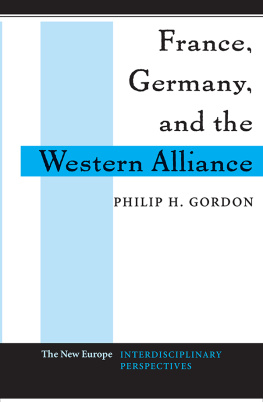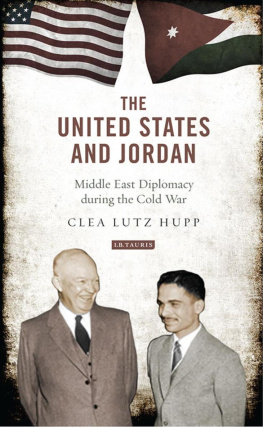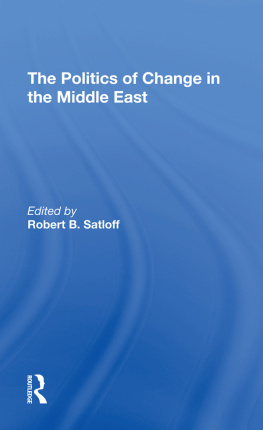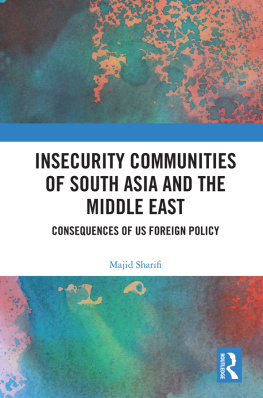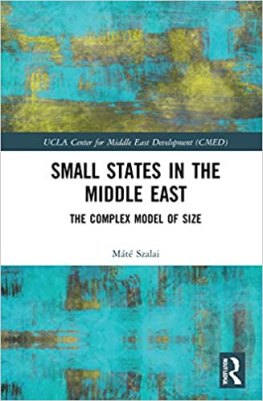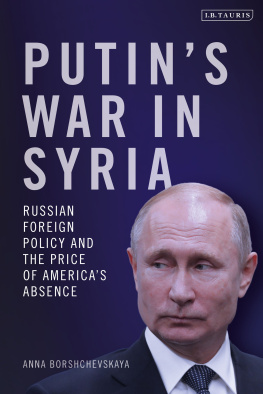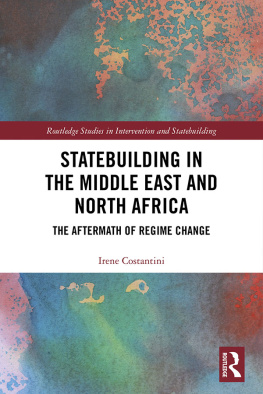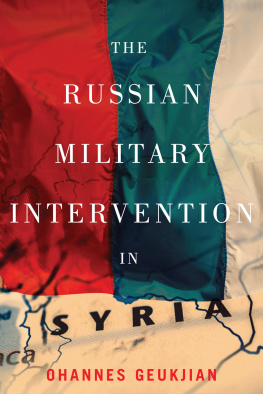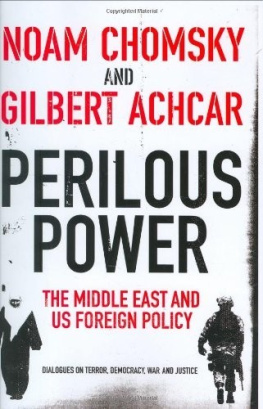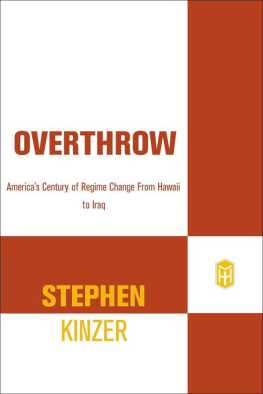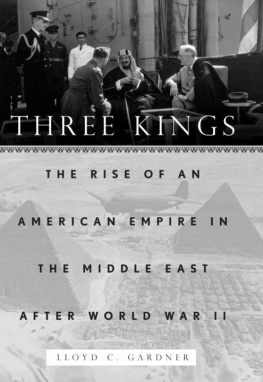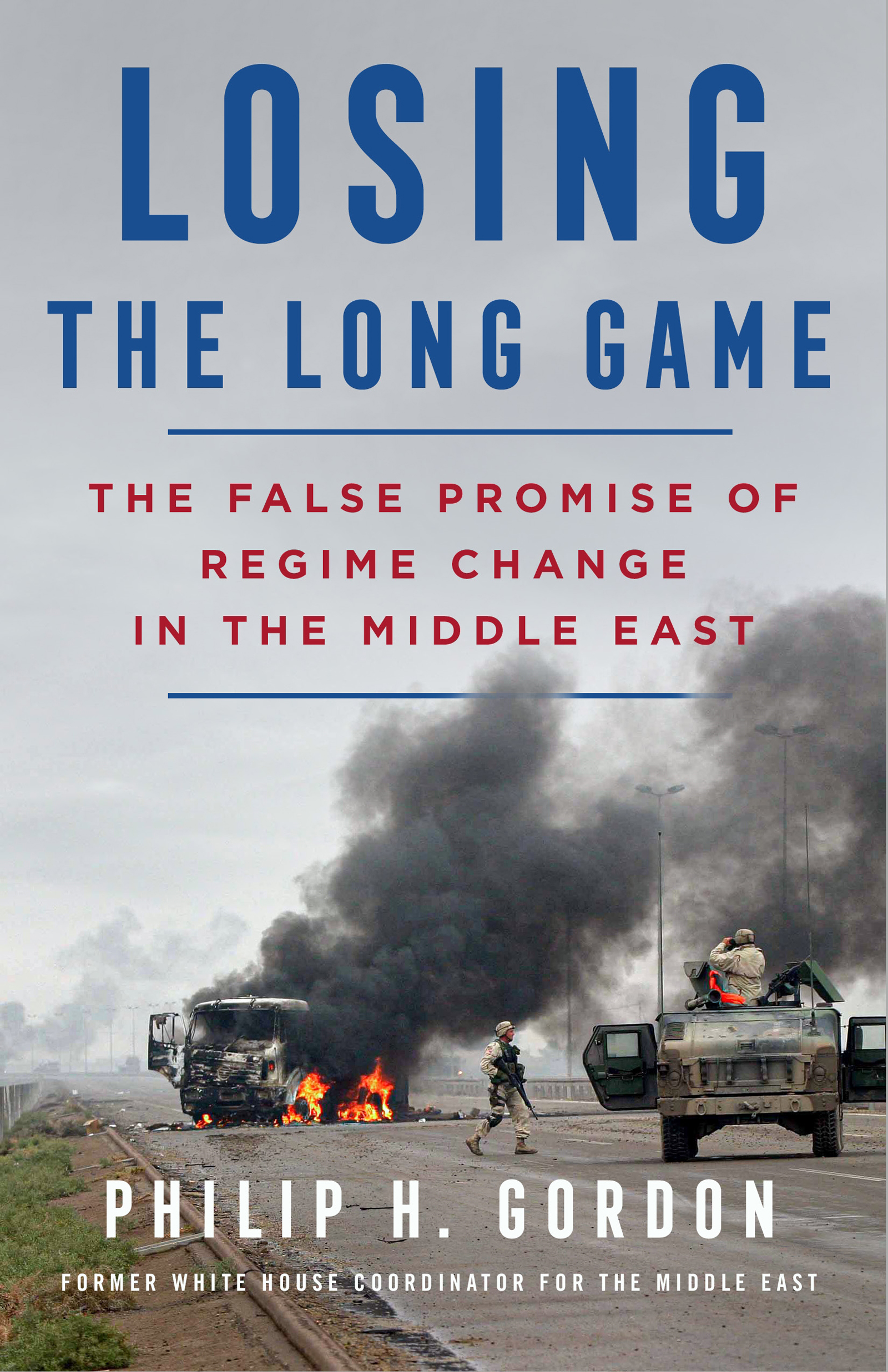The author and publisher have provided this e-book to you for your personal use only. You may not make this e-book publicly available in any way. Copyright infringement is against the law. If you believe the copy of this e-book you are reading infringes on the authors copyright, please notify the publisher at: us.macmillanusa.com/piracy.
Since the end of World War II, the United States has set out to oust governments in the Middle East on an average of once per decade. It has done so in places as diverse as Iran, Afghanistan (twice), Iraq, Egypt, Libya, and Syria, to count only the instances where regime changethe removal of a countrys leaders and transformation of its political systemwas the goal of U.S. policy and where an administration made sustained efforts to bring it about. The motives for U.S. interventions in all of these countries have been equally varied, including countering communism, competing with geopolitical rivals, preventing the development of weapons of mass destruction (WMD), combating terrorism, saving civilian lives, and trying to promote democracy. And the methods by which the United States has pursued regime change have also been extraordinarily diverse: sponsoring a military coup, providing covert or overt military assistance to opposition groups, invading and occupying, invading and not occupying, providing airpower to opposition forces, and relying on diplomacy, rhetoric, and sanctions alone. What is common to all these efforts, however, is that they invariably failed to achieve their ultimate goals, produced a range of unintendedand often catastrophicconsequences, carried extraordinary financial and human costs, and in many cases left both the target country and the United States worse off than they were before.
This book is the story of how regime change in the Middle East has proven so tempting to American policy makers for decades and of why it always seems to go wrong. Ive called the book Losing the Long Game because regime change often seems to work out in the short termleading to premature declarations of victory by its proponentsbut then ends up failing badly as costs mount, unintended consequences arise, and instability spreads in the wake of the apparent initial success. In fact, the long-term results of regime change in the region are so consistently disappointingregardless of the reasons why it was tried or the manner in which plans were executedthat it is surprising so many policy makers and analysts keep coming back to it as a viable policy option, hoping that somehow it will work out better next time. The track record also shows that the reason for the recurring failure is not just a matter of poor implementation or lack of sustained follow-upthe most common excuses of regime change proponents. Instead, it shows that there are inherently high costs, unexpected consequences, and insurmountable obstacles that make it exceedingly difficult for the United States to replace objectionable Middle Eastern regimes and leaders without creating new, different, and often bigger problems.
With few exceptions, the history of U.S. regime change efforts in the region reveals remarkably familiar patterns. Once U.S. policy makers become determined to remove a given regime, they overstate the threat, underestimate the costs and risks, overpromise what they can accomplish, and prematurely claim success if and when the targeted regime falls. Invariably, however, stability quickly proves elusive, a security vacuum develops, insecure and suspicious neighbors interfere, allied contributions fall short, and long-standing ethnic, sectarian, geopolitical, and personal rivalries emerge that the United States is unable to control. As unexpected challenges emerge and costs mount, those who conceived of and oversold the policy blame the results on implementation, and an if only phase beginsif only we had sent more troops, or fewer troops, or different troops, or more money, or better diplomats, or if only we had followed up on any one of a number of other policy options that were not pursued. Books and articles are written by key protagonists, explaining that victory could have been achieved if only U.S. leaders had been wiser, more determined, and willing to commit adequate resources to the task. Over time, the American public sours on the results of the intervention and tires of the costs of trying to make it a success, and the policy is shelved, usually after a new president enters office and blames the problem on the ill-conceived or poorly implemented strategy of his predecessor. This rejection of the policy then lasts until the next time leaders consider trying it againsometimes in the very same country where it failed the first time.
Not every case of Middle East regime change conforms exactly to this pattern, of course. In some cases, certain U.S. goals are met initially before problems emerge later; in others, some objectives are achieved while new, different, and unexpected problems are created; in many cases, the United States derives strategic benefits from its intervention while the citizens of the target countries pay the price; and in some cases the result is a disaster for almost all concerned. In other words, to paraphrase Tolstoy, every unsuccessful attempt at regime change is unsuccessful in its own way. But the patterns and outcomes are consistent enoughacross a wide range of countries, circumstances, and administrationsthat future U.S. leaders would be wise to take them into careful account before concluding, yet again, that U.S. efforts to oust existing regimes will prove worth the high costs and risks.
Debates about the pros and cons of regime change in the Middle East and elsewhere have gone on for many decades, and as both an analyst and a policy maker Ive been involved in them for nearly thirty years. The issue took on renewed practical relevance in 2018, however, when President Donald Trump withdrew the United States from the 2015 nuclear deal with Iranapparently pinning his hopes on a strategy of regime change there. To be sure, the Trump administration didnt officially embrace that goal and insisted it just wanted to change Iranian behavior. But it was hard to avoid the conclusion that regime change was the actual policy. Trump alleged in 2017 that the nuclear deal had come just before what would have been the total collapse of the Iranian regime and that it had impeded the Iranian peoples ability to reclaim their countrys proud history, its culture, [and] civilization.
Facing skepticism that the administration sought only to influence Iranian policy, Pompeo acknowledged to an interviewer in May 2019 that he didnt actually expect Tehrans behavior to change, but what can change is the people can change the government. What were trying to do is create space for the Iranian people.
A U.S. policy of promoting regime change in Iran would certainly be in Americas interest if it led to a new government that treated its people better, abandoned its nuclear program, stopped supporting terrorism and meddling in its neighbors affairs, and was ready to cooperate politically, militarily, and diplomatically with the United States. Far less clear was whether that goal could be achieved by the United States through the imposition of economic sanctions, diplomatic isolation, covert action, or military force; whether the results would be the intended ones if it somehow were accomplished; and what the costs and side effectsfor Americans, Iranians, and the regionwould be of trying and failing to do so.


